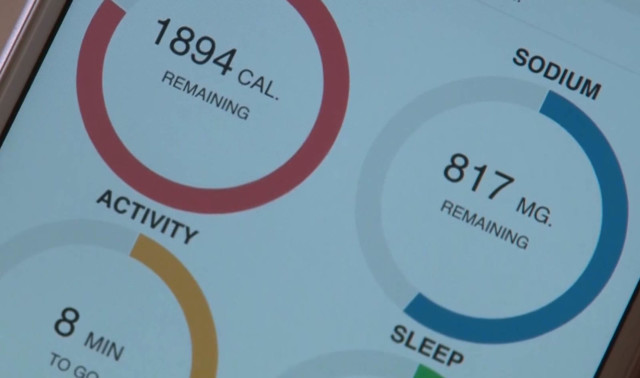Smartphone apps that monitor and track health personal health statistics are proliferating.
But even as technology improves, they can’t yet completely replace your doctor.
CCTV America’s Roza Kazan looks at some of the latest developments in digital health care.

Some are calling the next frontier in tech that the mobile health apps.
From counting calories to analyzing sleep patterns, some 165,000 health and wellness apps are now available for download.
Muhammed Fazeel’s startup Benecure promises to help users manage chronic diseases like diabetes and hypertension by measuring blood pressure, sodium content and activity level and syncing it all through a smartphone.
It also sends the data to your doctor who can monitor progress.
The success of Uber has led to one explosion of startups trying to replicate its business model. But can the Uber for x model be applied to health care?
A Chicago-based startup called Orunje believes it can. Like Uber, users can request a doctor or a nurse and the company promises to send one within two hours for a flat fee of $170.
But skeptics have said mobile health apps can also be unreliable – like the ones which promise to diagnose ear infections or a disease such as skin cancer.
Still, tech giants like Apple believe the market for mobile health apps is huge. Apple launched HealthKit last year and may soon release a new health-tracking device.
Scott Schober on health apps and privacy
For more on health apps and privacy, CCTV America’s Michelle Makori spoke to Scott Schober, Berkeley Varitronics Systems CEO and cybersecurity expert.
 CGTN America
CGTN America
